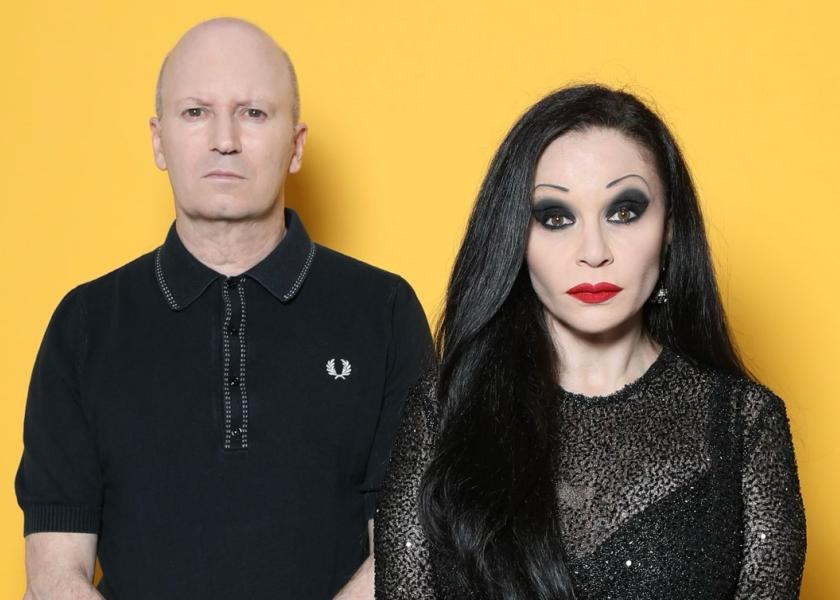Marina Herlop
A universal language

The spring of 2022 brought an unusual album onto the Spanish music scene. Singing in a made-up language, composed of syncopated sound passages and guided by experimentation, ‘Pripyat’ is an artistic discovery that has faith in the universality of music to generate emotions. Its author, Marina Herlop, now faces a new chapter since her talent has finally caught the public’s attention.
After publishing two albums that almost went unnoticed, Nanook (2016) and Babasha (2018), pianist Marina Herlop (Piera, 1992) —her stage surname comes from contracting her real surnames, Hernández López, which is how she was called at school— has turned into a renowned international artist thanks to this work. An album that the prestigious musical bible Pitchfork defined as follows: “[It] gives shape to a future world, one where language isn’t required to establish deep connections to the earth and to one another.”
Pripyat was a complicated album to make. Does the fact that it’s been well received make up for that uncertainty?
I’m really satisfied with how the album is doing and it’s encouraging me to carry on. My expectations were quite low. I didn’t know what to expect, especially after two albums that I’m really satisfied with creatively, but that weren’t very widely distributed. The simple fact of playing it and feeling that there are people that appreciate it means a lot to me.
There’s been a progression between your previous album and Pripyat, but your music still remains unconventional.
Since it’s my third, the album has been through more filters and analysis. And the tools I’ve used this time are electronic, so it was inevitable that the music would change. Which is exactly why I used them, to put some distance between this album and my first two. I didn’t want to hear myself again as I already knew myself.
“I encounter really welcoming audiences in remote places. There’s fertile ground for experimental music outside of Spain”
You started playing the piano at the age of nine, you stopped and then, while at university, you returned to your musical career.
At university I was open to new ways of thinking and that helped me recover my passion for music. There’s also the fact that I studied two degrees that had little employment potential, because what they tell you when you study journalism is that it’ll be really hard to find a job, so I thought: if my studies are going to lead to a dead end, I might as well study what I love, music.
Pripyat is a work that appeals to emotions, it’s not a cold or cerebral album.
I think that’s because there’s more pop in it than it seems. There are structures that repeat themselves, and that generates commitment within the listener. There are also musical elements that, although they may go unnoticed, are important in this regard. Some melodies are also reminiscent of popular folk music, nursery rhymes...
Pitchfork reviewed the album giving it an 8 out of 10. Has that also helped you to be discovered here?
To receive attention locally you also need to receive some attention internationally. Sometimes you receive more congratulations when a medium or person acknowledges your work than when you publish it. It seems that it’s more valuable when someone says it’s worth it, like a seal of approval, than listening to it and deciding for yourself whether it’s worth it or not.

On the 20th of January, Marina Herlop will present ‘Pripyat’ in Madrid (Conde Duque Contemporary Culture Centre) as part of Inverfest. © Anxo Casals
Are your performances abroad allowing you to grow?
Playing abroad and people appreciating and embracing my music astounds me. I didn’t know there was such a wide circuit of experimental music in Europe and the United States. Sometimes I encounter really welcoming audiences in remote places. There’s fertile ground for this music outside of Spain.
Which is the response you receive from the audience?
There are people who’ve written really emotional messages to me, saying that the album or a song has left a mark on a season of their lives. Thinking that the music that I made in my bedroom can now mean something to other people is hard to take in. It’s hugely gratifying.
“Thinking that the music that I made in my bedroom can now mean something to other people is hard to take in”
What’s talent for you?
Perseverance. Carrying on regardless, come rain or shine, or if you’re in a desert. If I become obsessed with something, I’m hardly going to succumb to bad weather. I’ve learnt that perseverance might not bring you an external reward, but it’s always personally rewarding.
Which are your medium and long-term plans?
My calendar is full and I’m really happy about it. The idea is to carry on playing concerts during 2023. But I want to dive into creating again. Packing my bags, meeting people, and performing is the opposite to being at home with a cup of tea going over a song. So, I hope I can take a rest from people, from social media, and from the noise and start working on new songs. I need to go somewhere remote alone, to work intensely but without pressure.
“I’ve learnt that perseverance might not bring you an external reward, but it’s always personally rewarding”
In short, do you need to surround yourself with some semblance of calmness to create?
You can spend all day working and not get anything out of it, but you need that day to realise that you don’t like what you’ve made. And that’s inconceivable in the hyper-productive society we live in. To break away from that you need to leave and forget about it. I've created all the music that I’ve made up until now without anyone paying much attention to me. I never had to meet other people’s expectations and there was no risk of letting anyone down. I’m slightly concerned that the next album won’t be like that anymore.


